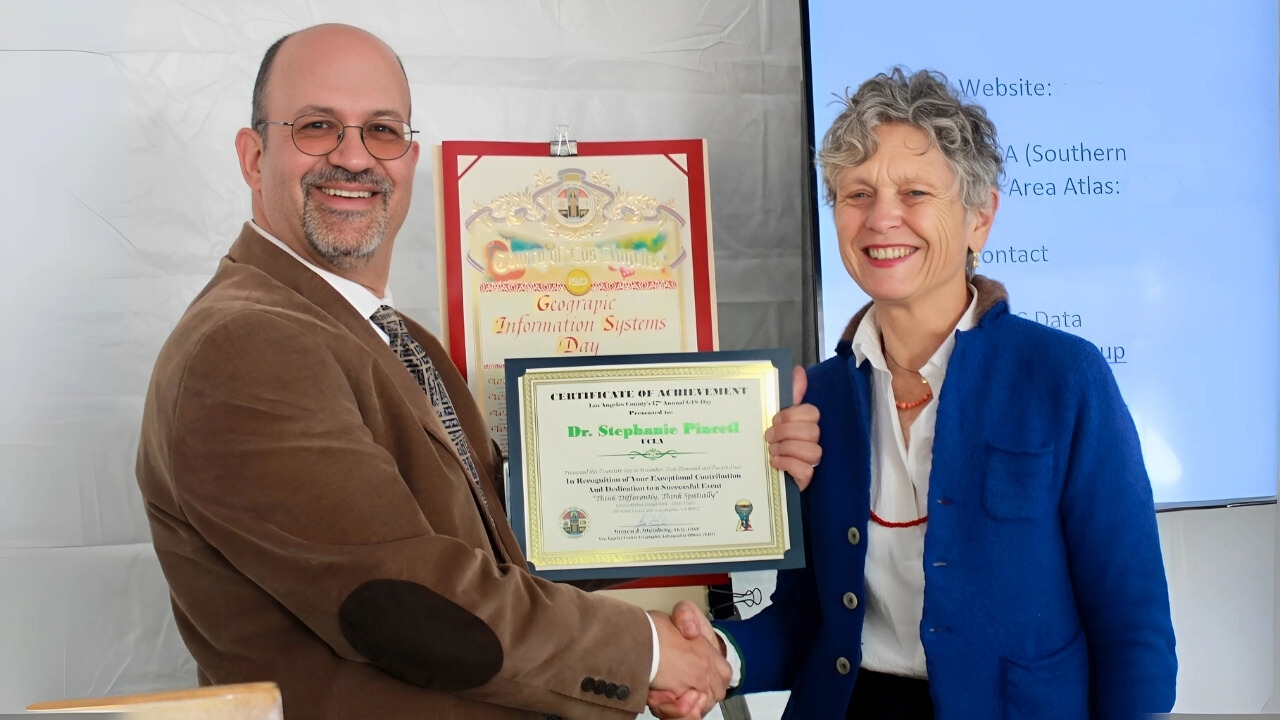
Tech skills boost students’ confidence in environmental research, study finds
This shift underscores the growing significance of technological skills and tools — and the need for students to develop these abilities. Even having one such tool led to substantial improvements…
The rapid evolution of technology in recent decades has led traditional job roles to adapt, while emerging positions increasingly call for expertise in science, technology, engineering and mathematics (STEM).
This shift underscores the growing significance of technological skills and tools — and the need for students to develop these abilities. Even having one such tool led to substantial improvements in students’ confidence and competence in working with complex environmental data and coding, according to new UCLA research.
With the ability to use Google Earth Engine — a computing platform that uses satellite images to analyze environmental changes — all 95 students in the study reported “statistically significant increases in their confidence with coding, remote sensing and environmental literacy” in pre- and post-course surveys, said Ileana Callejas, lead author of the paper and a UCLA doctoral student in civil and environmental engineering.
This effect was observed across demographic groups, including gender, first-generation college students and underrepresented minorities. In survey responses, students also showed improved engagement and learning as they gained practical experience applying remote sensing skills to real-world environmental research questions.
The researchers implemented a case study to engage students in scientific research, implementing their approach in two UCLA courses: an upper-division engineering class and a freshman writing course. The students conducted hands-on environmental research and analysis, utilizing Google Earth Engine for remote sensing. Meanwhile, students in the engineering class researched ocean water quality changes connected to shifts in human activity during the COVID-19 pandemic. They found that water quality improved along the coast when fewer people were visiting because of pandemic isolation.
The survey results underscore the potential of teaching technical skills to promote inclusivity within STEM fields, the authors wrote. Giving students such skills can open doors to students of diverse backgrounds, enabling them to participate in global scientific advancements more effectively, said Jennifer Jay, senior author of the research paper and a UCLA professor of civil and environmental engineering.
“Legitimate research opportunities should be accessible to everyone, not limited to those with connections or lab volunteering opportunities,” Jay said.
Inequalities related to gender, race and ethnicity within STEM fields further compound the issue. Hispanics make up 8% of the STEM workforce but 17% of all occupations combined. And women in STEM earn a median annual salary of $66,200, just 74% of $90,000 for men.
Such inequalities make it harder for marginalized groups to access well-paying jobs in STEM, limiting diverse viewpoints in research and making it difficult to come up with creative solutions for urgent global problems, Jay said.
Published:



